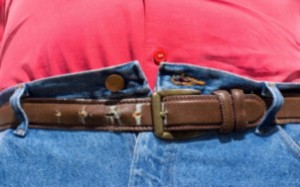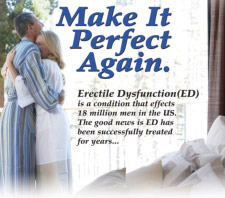 While it may seem inevitable, there are some things you can do to fight age-related belly fat.
While it may seem inevitable, there are some things you can do to fight age-related belly fat.
Do your birthdays coincide with an extra notch added to your belt? You’re not alone. Unfortunately, many of the culprits that contribute to weight gain increase with vengeance as we age. Even worse is the accompanying muscle loss.
Research shows that weight and BMI gradually increase during most of adult life, reaching peak values between 50 and 59 years of age in both men and women. Along with an increase in weight—mostly from fat—there’s a decrease in fat-free mass, also known as lean mass and it’s mainly composed of muscle tissue. Some evidence shows that lean mass, and the muscle that comes with it, can decrease by up to 40 percent from age 20 to 70. This loss of muscle may contribute to the redistribution of fat seen in older adults with a greater increase in belly fat accumulation (clinically known as visceral fat) and increased risk for disease.
Weight gain culprits
Poor diet: This may seem like a no-brainer, but eating a poor diet is a major contributor to weight gain. Not only are adults eating too many calories, but they’re also eating the wrong kinds of calories. In fact, research suggests that US consumers meet dietary guidelines on average just seven days out of 365 that’s less than 2 percent of the time!
One of the most important nutrients for fueling fat loss and stimulating muscle growth is protein. As people get older, consumption of protein tends to decrease. One study found that about one third of older adults eat less than the Recommended Daily Intake (RDI) for protein and about 15 percent eat drastically less than recommended for protein. New research proposes that older adults actually need up to double the amounts of protein than the current RDI, especially when attempting to lose weight.
Decreased energy expenditure: Body fat mass is largely dependent on what you eat and how much of that energy your body uses. A decrease in how much energy is used by the body—also known as Total Body Expenditure—is an important contributor to age-related weight gain.
Total body energy expenditure is dependent on three main sources of energy use. First, resting metabolic rate (RMR) is the energy the body needs just to stay alive and accounts for about 70 percent of the energy used by the body. The second source of energy expenditure is called the thermic effect of food, or the energy needed to breakdown and absorb food. Lastly, physical activity is a source of energy expenditure.
Unfortunately, all three sources of energy expenditure decrease with age. Studies have shown that our RMR decreases 2 to 3 percent every decade after age 20. Most of this loss can be attributed to having less lean mass and muscle. Additionally, the thermic effect of food has been found to be 20 percent lower in older men than younger men. On top of that, older adults tend to perform less physical activity.
Reduced physical activity: Researchers estimate that reduced physical activity accounts for about one-half of the decrease in energy expenditure that occurs as we age, leading to increased waistlines over time. Reasons behind aging adults getting less physical activity range from lack of time to an inability to exercise due to ailments or immobility. Not getting enough physical activity not only contributes to belly fat, but it also can lead to reduced strength, increased frailty and susceptibility to injury, and a lower quality of life.
Hormonal changes: Hormone alterations are another cause for concern when trying to tackle age-related weight gain. Aging is associated with a decrease in growth hormone, which directly affects the muscle-making process. Additionally, resistance to the hormone that regulates appetite, leptin, could blunt feelings of fullness and lead to overconsumption.
The solution
While it may feel like your body is working against you, there are some things you can do to avoid age-related weight gain and muscle loss:
- Eat a balanced diet with high amounts of quality protein. There are many studies that show diets higher in protein fuel weight loss while maintaining muscle mass. In fact, one study found that older adults who had higher intakes of dietary protein lost 40 percent less lean mass than those who had a low protein intake.
- Engage in aerobic exercise and resistance training. The key to healthy weight management as we age is to combine a healthy diet with exercise. A randomized controlled trial found that those who managed their diet and exercise regularly maintained muscle mass compared to a group who just managed their diet.
- Supplement the body with proper nutrients including vitamin D, calcium, and omega-3s. One of the greatest causes for concern for adults when engaging in weight loss is the effect on bone mineral density. By supplementing the diet with adequate amounts of vitamin D and calcium, bone mineral loss can be minimized. Additionally, omega-3 fatty acids may help preserve muscle mass.
Fight back against the belly bloat as you age by sticking to a balanced diet, eating adequate amounts of high-quality protein, engaging in daily physical activity, and supplementing the body with the nutrients it needs.
